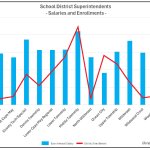NEWARK – With tax season in full swing, Attorney General Gurbir S. Grewal and the Division of Consumer Affairs are urging New Jersey residents to be aware of potential scams, fraud and predatory tactics that put their tax refunds in jeopardy and financial security at risk.
According to a release, from identity theft malware and IRS imposters to “ghost” tax preparers and “instant refund” offers, tax season is fraught with schemes and scams targeting taxpayers anxious to meet filing deadlines.
“Tax season is prime time for financial predators,” stated Grewal. “With millions of people gathering and transmitting their personal and financial data through the mail and over the Internet, the opportunities for thieves are almost endless. We urge consumers to be on high alert this tax season.”
“Combating identity theft and financial scams and abuses are a top priority for me and we are taking steps to fight them,” stated Paul R. Rodríguez, acting director of the Division of Consumer Affairs. “Taxpayers can serve as their first line of defense by protecting their personal and financial information from fraudsters in search of new and creative ways of stealing valuable information.”
Here are some common tax season schemes and scams:
IRS Imposters – Identity thieves often use stolen personal identification to file a tax return in someone else’s name and steal their refund. During the 2019 tax filing season, the IRS flagged more than 3 million tax returns with refunds totaling approximately $14.7 billion as possibly involving fraud based on identity theft. Many fraudulent filings contain information stolen during prior tax seasons.
Criminals who have some but not all of the information they need to file a claim in someone else’s name may try to obtain the missing information by calling intended victims and pretending to be from the IRS or another government agency. They claim they are trying to verify personal information, but what they are really doing is trying to trick you into providing the information they need to file a claim in your name. Never provide personal information to someone who calls you unsolicited.
Instant Refund Offers – The so-called “instant” refunds or “advances” advertised by some tax preparers take advantage of people’s desire to receive their refunds faster than they would receive it from the federal government.
These “fast refunds” are not really refunds at all. They are actually short-term loans that may carry exorbitant interest rates and service fees that take huge chunks of the refund consumers would otherwise have gotten back from the government.
Avoid them. The fastest way to collect a full tax refund is to file returns electronically and have refunds deposited directly into a bank account. Refunds are usually issued within a few weeks.
Tax-Related Phishing Scams – During tax season, identity thieves target taxpayers with phony emails, disguised as coming from the IRS or popular tax preparation sites, claiming there is a problem with the taxpayer’s return. The emails direct you to click on a link and provide your personal information to “unlock” your account.
Never respond to unsolicited emails asking you to provide personal information or submit scanned copies of your personal documents.
“Ghost” Tax Preparers – Most tax preparers are honest professionals, but some are common criminals who set up shop to take make a quick buck. These con artists usually base their fees on a percentage of customers’ refunds, then file false information that inflates your “refund” and pumps up their fees.
A common red flag of this scam is when a tax preparer will not sign your return or include their Preparer Tax Identification Number on it, as required by the IRS. By the time the IRS identifies the filing as fraudulent, the ghost preparer is long gone and the taxpayer is left to answer to the government. Make sure to choose a tax preparer who is qualified and has a valid Preparer Tax Identification Number or “PTIN.”
To find a qualified tax return preparer close by, search the IRS’s online Directory of Federal Tax Return Preparers with Credentials and Select Qualifications. IRS tax volunteers are available to assist many New Jersey residents with preparing their New Jersey Income Tax returns for free at preparation sites throughout the state. For more information visit the NJ Division of Taxation’s website.
If it is believed someone has filed a fraudulent return in one’s name, it is possible to get a copy of the return. See Instructions for Requesting a Copy of Fraudulent Returns.
If the taxpayer has e-filed their tax return and gets a message telling them that a dependent on their return has been claimed on another tax return or their own, or if an IRS Notice CP87A is received, the taxpayers will need to find out why someone else claimed the dependent. Learn more at What to Do When Someone Fraudulently Claims Your Dependent.







